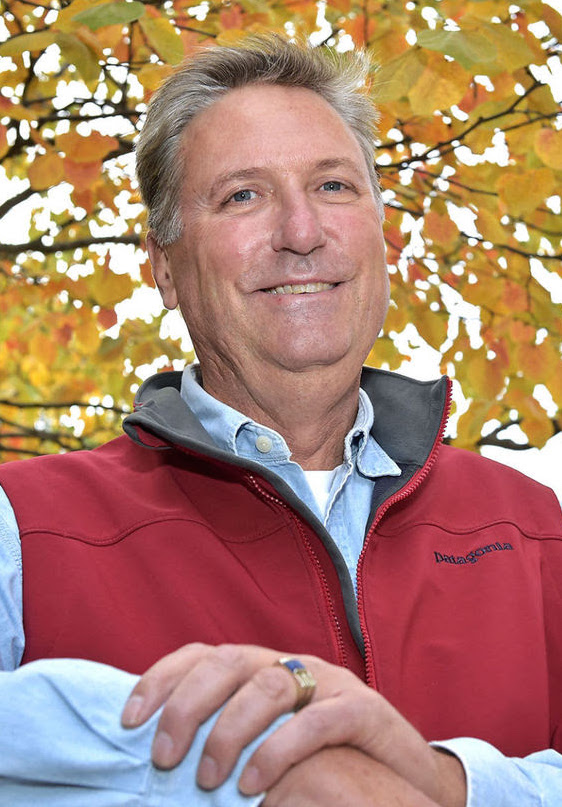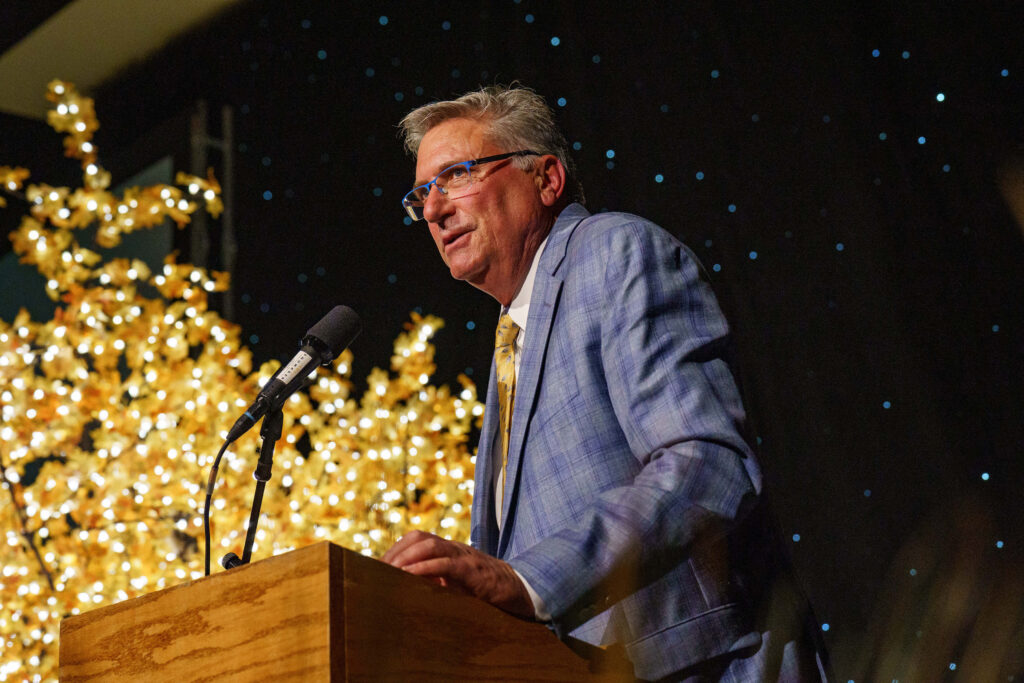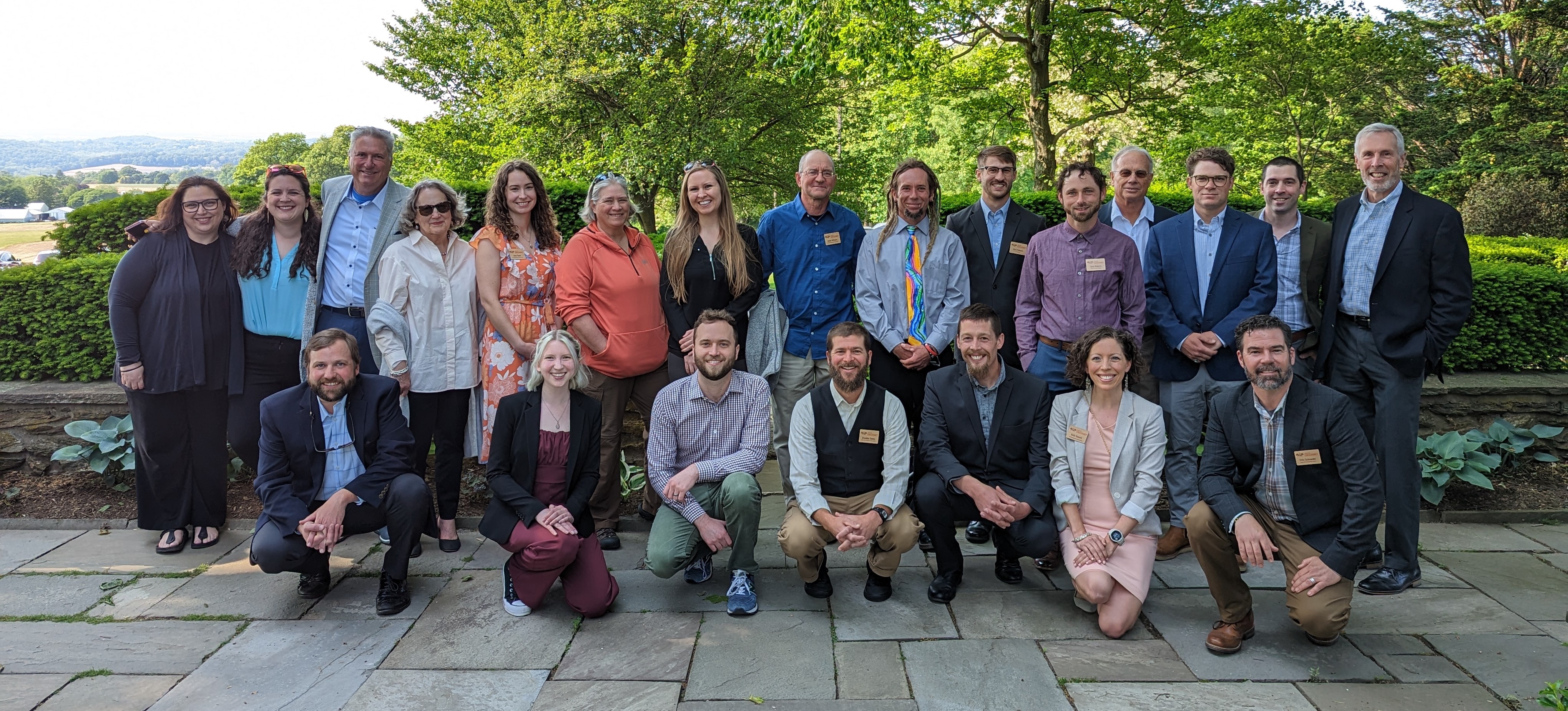By Phil Wenger
Dear Friends,
In 2015, my future focus was unclear after working 35 years building a restaurant chain in Central PA. Community service was built into the DNA of Isaac’s in the ‘90s and early 2000s. In addition to how we treated employees and customers, we tried to lead an industry to build green buildings, we offered large vegetarian sections and catered to vegans, we were early adopters of recycling. We used to brag about repurposing old buildings and strip malls rather than building new structures on bare earth. We partnered with the Audubon Society to protect bird habitat and with the Lancaster Farmland Trust to save a farm in Caernarvon Township.
But you would not have called me an environmentalist.

Phil in 2015 after starting his job at the Lancaster Conservancy
However, when I was ready to leave the restaurant industry, a friend suggested that I apply to lead our local land trust, the Lancaster Conservancy, even though I didn’t know this business. How does a local business leader and restaurateur jump over into a land trust that protects land for humans and wildlife, focusing on environmental restoration and outdoor recreation? Was this the path forward that would motivate and inspire me? The answer to whether this career change would be the right fit after I sold Isaac’s lay in my past.
My father and mother were missionaries and church leaders, but Dad was also an amateur naturalist. He documented wildflowers in the 1930s and kept a large dried wildflower collection in the attic. He taught his children to identify and love birds and plants. He gardened organically before it was cool, using sprays only when black rot destroyed our precious grape crop. We camped on our family vacations, learning the constellations in the black skies while bathing in the sounds of nature at night. But the purpose of life was to win souls for Christ and to serve — saving the environment was at best an afterthought for my parents.
This lack of alignment with my parents’ passion led to my own conversion as a naturalist. I wondered, what good is it to put your energy into working with humans’ spiritual needs, preparing them for the next life, when their existing life on planet Earth is under such duress?
From the Conservancy, I learned that threats from air and water pollution, threats from unsustainable development that destroys our natural systems, threats from an atmosphere filling with carbon dioxide from burning fossil fuels and other ozone-destroying compounds will cause suffering and extinction. So protecting this world we live in became a focus of my life.

Phil speaks at the 2022 Dine on Harvest Moon dinner & auction (Photo by Nick Gould)
In 2015, I started working for the Conservancy – a great fit. It aligned passion and purpose with my job and the organization’s needs. The Conservancy unleashed this uneasy and growing understanding that our natural landscapes were being taken over by unsustainable development, that our planet is challenged, and that all I cherish and love about our unique and interrelated ecosystems here in Lancaster and York was disappearing.
Our planet is not a place we can just trash and destroy! It is a precious place with a complex web of life, of which humans are just one piece. The lands we claim as our personal domains are not here just to produce profit and happiness, they are all connected to what gives us life. The relationships between animals and insects, the organisms that clean our waterways, the trees that filter the air are more important than our individual wants and needs.
The Conservancy also introduced me to a lot of young people who care about conservation. I can almost sense their judgement about how long it took folks like me to arrive at this conclusion. Their judgement does produce guilt – good guilt – because it motivates us to act today to benefit future generations. That’s the lesson I learned and want to share: good guilt allows us to grow and change our behavior.
And what a fun ride it’s been building out this organization over the last eight years. We have doubled our land protected to over 10,000 acres. We built a team to restore and nurture life on our 50 nature preserves. We dramatically expanded the funds available with private and public grants. We expanded our professional staff. Our Board shifted to strategy and building resources.
I predict the future Conservancy, under Fritz Schroeder and the new leadership team, will become an even more essential and impactful community organization over the next decade. Now is the time we must address our threatened planet. People and companies are taking proactive steps, working with us. We will lead efforts to respond to the crisis our planet is experiencing and do this by nurturing nature at a local level and protecting land before it’s all lost.
 Lancaster Conservancy staff at the 2023 Spring Celebration at Drumore Estate
Lancaster Conservancy staff at the 2023 Spring Celebration at Drumore EstateThink about this as you smell the smoke from the wildfires burning in Canada, causing breathing challenges even here in Lancaster and York counties. Think about this as you read about yet another dam proposed on the Susquehanna River that will destroy “just” hundreds of acres of forests and pristine natural area to generate peak electric power.
Nature needs us to repair the damage we’ve already done to Mother Earth and protect the life she holds. The Conservancy is her partner. My generation has an obligation to pay her back for giving us our lives. There is so much we can do to spread the message, restore our own properties, change our own habits to lower our carbon footprint and consume less.
As the leadership of the Conservancy transitions and younger, more passionate people take over, I will still invest my energy protecting the marvelous natural world we grew up loving and help people wake up to what I believe is the most important issue on the table – the survival of all species and the web of life that supports our ability to exist.
I hope to see you in nature ”on the trail” and thank you for supporting our work.
Sincerely,

Phil Wenger
Outgoing President & CEO
Major Gifts Lead as of July 1, 2023
